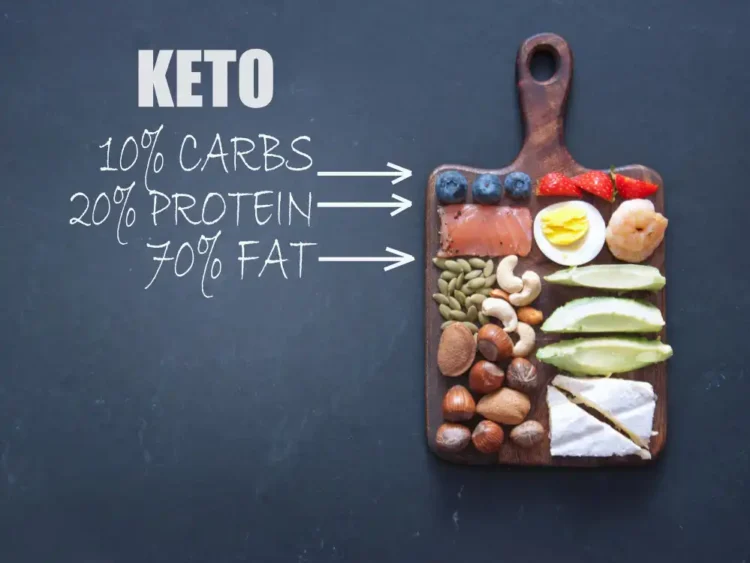Are you following a ketogenic diet but struggling to see the results you desire? It’s time to dive into the world of macros and discover how they can make all the difference. But how exactly do you calculate your keto macros? Is there a secret formula that will unlock the key to weight loss and optimal health? Let’s unravel the mystery and find out how to calculate your keto macros like a pro!
Key Takeaways:
- Calculating your keto macros is crucial for success on the ketogenic diet.
- A keto macro calculator helps determine the ideal macronutrient ratios for your goals.
- Tracking your daily intake of fats, proteins, and carbohydrates is essential for maintaining ketosis and optimizing your results.
- Various tools and apps can aid in tracking your macros and staying on track with your weight loss or health goals.
- Consult with a healthcare professional or registered dietitian for personalized advice and guidance.
Using a Keto Macro Calculator
When it comes to following a successful keto diet, calculating your macros accurately is key. Your macros refer to the specific amounts of fats, proteins, and carbohydrates you should be consuming each day to achieve and maintain nutritional ketosis. While it may seem challenging, the process becomes much simpler and more efficient with the help of a keto macro calculator.
A keto macro calculator is a valuable tool that takes into account essential factors such as your gender, age, height, weight, body fat percentage, activity level, and goals. By inputting this information into the calculator, it provides you with personalized recommendations for your daily calorie intake, as well as the specific grams of fats, proteins, and carbohydrates you should be consuming.
With the information provided by the keto macro calculator, you can set the right calorie deficit or surplus to align with your weight loss or muscle gain goals. It’s important to note that the recommended macronutrient ratios for a ketogenic diet typically include a low carb intake of around 5% or less of total calories, as well as a moderate protein intake.
The best keto macro calculator takes all these factors into account to provide you with an accurate and customized macro profile tailored to your unique needs. Not only does it give you the ideal macronutrient breakdown, but it also helps you understand your calorie requirements, making it easier to plan your meals and track your progress.
By using a keto macro calculator, you can take the guesswork out of calculating your macros and ensure that you’re maintaining the optimal macronutrient ratios for your ketogenic diet.
With the help of a keto macro calculator, you can easily stay on track and optimize your results on the ketogenic diet. It provides you with the necessary guidance to start your keto journey with confidence and make informed dietary choices. Use the calculator to calculate your macros accurately and embark on a successful ketogenic lifestyle!
Tracking Your Keto Macros
Once you have calculated your keto macros, it’s crucial to track your daily intake to ensure you’re staying within the recommended ranges. Tracking your macros allows you to monitor your progress, make adjustments if needed, and stay on track with your weight loss or health goals.
You can use various tools and apps to track your macros easily, including food diaries, meal tracking apps, or the keto macro calculator itself. By recording your meals and snacks and comparing them to your macro targets, you can ensure you’re consuming the right amount of fats, proteins, and carbohydrates. This level of tracking helps you maintain ketosis and optimize your results on the ketogenic diet.
Conclusion
Calculating your keto macros is crucial for achieving success on the ketogenic diet. By using a keto macro calculator, you can determine the optimal macronutrient ratios that align with your health and weight loss goals. This personalized approach allows you to tailor your diet to your specific needs and ensure you’re consuming the right amounts of fats, proteins, and carbohydrates.
However, calculating your macros is just the first step. Tracking your daily intake is equally important to ensure you stay within the recommended ranges and maintain ketosis. Tracking can be done through various tools and apps, such as food diaries or meal tracking apps. By monitoring your macro intake and comparing it with your targets, you can make necessary adjustments and stay on track with your weight loss or health goals.
Remember, it’s always a good idea to consult with a healthcare professional or registered dietitian if you have any specific dietary concerns or health conditions. They can provide personalized guidance and help you make informed decisions regarding your keto macros. So, start calculating your keto macros today and take control of your health and weight loss journey!











